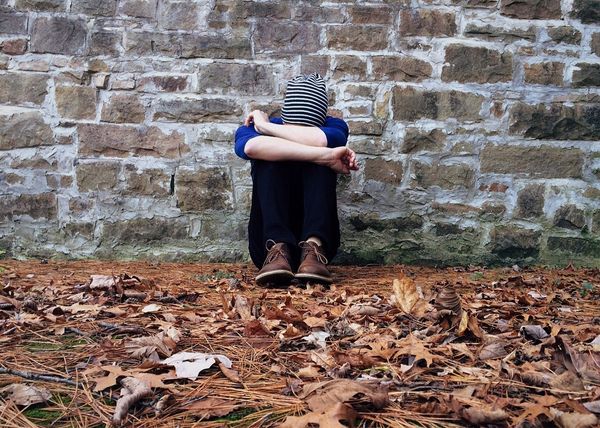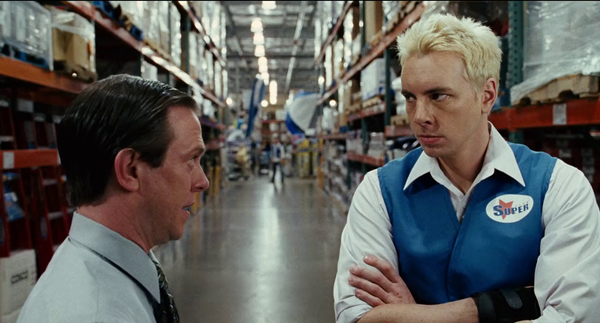Adman Singer
recalls being 13 years old when he took OxyContin for the first time. He just witnessed a suicide and needed something to numb the pain.
On the fourth of July 2002, Singer and his friend walked over to the neighbor's house across the street. Moments after letting themselves in, a horrifying sound exploded throughout the house. The neighbor had shot himself in the head. Traumatized, the young boys ran to the friend's mother where they were given alcohol and OxyContin to ease their nerves. This was the beginning of Singer's downward spiral.
"All I understood was that a small pill took my pain away, and I loved that," Singer told me.
Growing up, abusing opioids was apart of Singer's life. It was the only thing that made him feel normal.
In high school, Singer took a daily dosage of OxyContin each morning before class. Regularly, he and his friends prowled down their school's hallway looking for a classmate willing to sale. The most common deal offered to them was an 80-milligram pill for $35. Today, pills are much cheaper, Singer said. The addictive drug was equally, if not more accessible than a case of beer, Singer said.
By senior his year, Singer was class president but admits he does not even remember graduating because of his unstable condition. His body became completely depended on opioids without him even realizing it.
"I wasn't a functional member of society," Singer said. "I was wasting away."
After his first week of college, he sold his textbooks to buy drugs. To support his addiction, Singer often stole prescriptions and money from family members, he said.
Once his parents caught him stealing, he was kicked out of their house and forced to live with his uncle in Virginia. There, his uncle just had surgery on his pancreas and was prescribed Oxycontin. Without thinking, Singer stole his prescription and replaced it with Tylenol.
"I didn't even feel bad about it," he said. "I had turned into a monster."
Once Singer ran out of ideas to support his pill habit, he turned to heroin. With heroin being much cheaper and more readily available, addicts frequently abuse it after becoming addicted to prescription drugs, he said. Soon after using heroin, Singer started dealing it. During this time he overdosed four times, lived in an abandoned house, and nearly amputated his arm because his veins were critically damaged from needles.
After shooting up lethal heroin in a gas station bathroom, Singer called his brother in a panic begging for help. After that phone call, he never abused another substance again.
"That was my rock bottom," he said. "I thought I was going to die in that bathroom."
Illegal opioids are far more dangerous than a doctor's prescription, said Anthony Foto,
an FBI Agent on the New Orleans Drug and Gang Squad. Addicts often know this, but do not care, as long as they get their high. A dealer's main objectives are to create the perfect high and increase their profit. These motives lead to deadly concoctions and the possibility of a user overdosing, according to Foto.
"Dealers will mix their drugs with anything from baking powder to fentanyl," Foto told me.
In an attempt to track down a notorious drug dealer and leader of the "Byrd Gang," Timothy Jackson, Foto and his co-case agent James Ollinger, followed a buyer of Timothy's and stopped him in Metairie. The man was coming from a heroin pick up.
After the man was pulled over, he explained that he was a "good man" with a master's degree, a well-paying career, and a loving family. He never imagined he'd become a heroin addict.
"It is truly devastating seeing a well-grounded person completely throw their life away," said Ollinger.
The man became a yet another victim of Louisiana's opioid epidemic after a minor car wreck left him with back pain. To eliminate the pain his doctor prescribed him Oxycontin. This small pill would soon forever wreck his life.
Cases frequently begin this way. Patients become addicted to their prescription and turn to illegal drugs once they are no longer given the drugs from their doctor, Ollinger said. Ollinger also states that Before the opioid epidemic, addicts that abused prescribed opioids never died from them, but once they became more accessible, people mixed them with illicit drugs, causing a dramatic increase in opioid-related deaths.
"The accessibility to illegally sold opioids is steadily increasing and creating a huge burden on both law enforcement and the medical field," Foto said. Pill mills are constantly popping up. These mills are created when a medical personnel forges copies of prescriptions to obtain a massive number of opioids. With these drugs, dealers either sell the pills as they are, or mix them into heroin to create a stronger high, Foto said.
"It's like whack a mole, the second we take a mill down, another one pops up," Foto said.
Drug abuse is an infectious disease that affects all aspects of the city. Though law enforcement agencies are pulling their resources together to effectively arrest dealers, this nationwide epidemic cannot be solved until physicians and pharmacies drastically limit opioid prescriptions, Foto said.
Until recently, doctors prescribed opioids as only a last resort to cancer patients, according to the article, "How to Train Your Opioid Consumer: Branding Painkillers in the Opioid Epidemic."
Physicians during the early 1990s strongly feared the highly addictive and dangerous drugs, describing the medical field as "opiophobia," the article stated.
Physicians quickly faced their fears. By the mid-1990s, two ideas gained popularity: patients deserve more treatment for their pain and opioids are not as addictive as previously thought. This caused opioid use to skyrocket overnight, stated the article.
In 2010, enough opioids were prescribed to keep every single adult medicated for 24 hours for an entire month in that year alone, stated the Centers for Disease Control and Prevention.
This dramatic shift in pain treatment caused opioid-related overdoses and deaths to quadruple over the past decade.
To ensure a patient's pain is not undertreated, it is mandatory for nurses to asses each patients' pain by having them rate it on a scale from one to ten, with ten being extreme pain, said Christine Ragusa
, a cardiac nurse for Baton Rouge General. The most common number patients give her is eleven. They frequently lie about their pain in an attempt to receive a prescription because they are addicted or hope to sell them to addicts, Ragusa said.
It only takes one complaint about chronic pain for a prescription to be made. As long as the pain is considered "the fifth vital sign," the demand for instant relief will remain to fuel the opioid epidemic, she said.
"We think we are entitled to never feel pain," Ragusa said.
Physicians and pharmacies now computerize prescriptions and limit patient refills in response to the opioid epidemic. By doing this, prescription drugs become less accessible and lowers the possibility of a patient selling leftover pills, Ragusa said.
The Drug Enforcement Agency also lowered the amount of opioid production in the United States by 25% last year, but the drugs' popularity has already made an irrevocable impact on society. Addicts are capable of finding other methods to get them high, Singer said.
"Prescription drugs are the gateway to heroin," he said. "So it makes since that a rise in prescription drugs created a rise in heroin addiction."
Ten years ago rarely anyone abused heroin, but now it is the most common substance addicts use, said Catrina Bonomolo
, a substance abuse nurse at St. Christopher's Addiction Wellness Center. There Bonomolo works with addicts by helping them through a 30-day detox and residential treatment followed by a 90-day extended care program. During these 90 days addicts learn how to become adults and manage their pain without drug use, Bonomolo said.
Today's society expects instant gratification. Anytime a person experiences any physical or even emotional pain, a doctor offers a pill to "cure" it, and before the patient knows it, they become victim to drug abuse, said Bonomolo.
"I believe some doctors get patients addicted because they know it will keep them coming back, giving the doctors more and more money," Bonomolo said.
Opioids provide doctors with an easy, quick solution for their patients, but they also finically benefit the doctor, she said. The sale of prescription drugs to pharmacies and health care providers increased more than 300 percent over the past 20 years, according to the Drug Enforcement Administration.
Opioid marketing and branding allow manufacturers to normalize their harmful drugs. By "selling sickness," pharmaceutical branding promotes the idea that being medicated is the solution necessary to help a patient feel like "them self," the article stated. This exact reason is why Singer abused opioids for most of his life.
Growing up with depression and anxiety, Singer never felt like a normal member of society. Drugs offered him a sense of comfort and normalcy. Before his sobriety, being high was the only time he ever felt like himself, Singer said.
Addicts commonly abuse drugs because of a mental illness, Bonomolo said. Their brain's chemical imbalance increases their vulnerability to addiction and drug dependency. Though addiction is treatable, there is only a 35% chance they will remain sober, after at least 90 days of treatment, she said.
"This is a disease, but it's hardly ever treated properly," Bonomolo said.
Though media is increasing its focus on the opioid epidemic, society needs to create a conversation on how to fix this, Bonomolo said. There is currently little access to affordable treatment, making recovery nearly impossible. This causes addicts to continue abusing drugs until they are either incarcerated or killed, she said.
"Other than death, incarceration is the worst thing for an addict," Bonomolo said.
When Singer first attempted detox, he struggled greatly finding an affordable rehab in Louisiana.
"It was truly an uphill battle," he said. Every place he knew of either shut down or was too expensive."
Now sober for three and a half years, Singer works with Bonomolo at St. Christopher's Addiction Wellness Center. There he assists addicts in regaining back their lives and practicing sobriety.
"Helping others recover is the most gratifying feeling," Singer said.



















